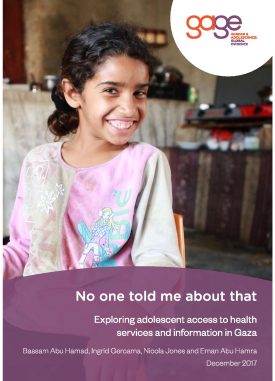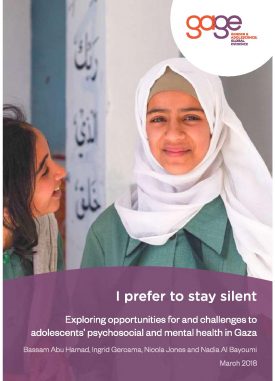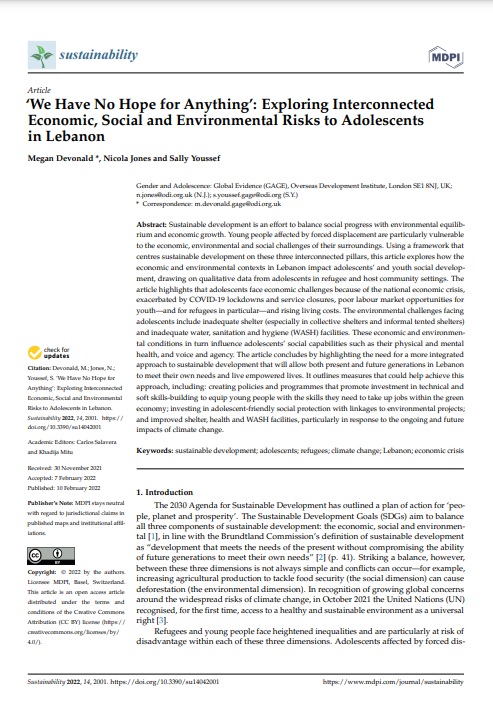Adolescent mental health is increasingly recognized as a critical concern. Globally, suicide is among the top 5 causes of death for 15–19-year-olds (girls and boys). In the Middle East and North Africa, the prevalence of mental disorders (17.3% for girls and 16.8% for boys) is the second highest in the world. The Covid-19 pandemic has exacerbated adolescents’ vulnerabilities, particularly through the impacts of lockdowns and school closures. This article explores adolescent experiences in Gaza, drawing on mixed-methods research carried out in late 2020 in refugee camps (29%) and urban settings (71%). The drivers of these negative mental health impacts during the pandemic include deepening household economic vulnerabilities, heightened intra-family tensions (boys and men spending more time at home, increasing domestic work burdens on girls and women), and isolation from peer networks, especially for girls. We conclude by discussing implications for policy and programming, in line with Sustainable Development Goal 3, to promote mental health and well-being for all. Measures include investing in age- and gender-responsive interventions (including social protection) to support positive coping repertoires among adolescents, mitigating risks of substance abuse, investing in counseling services (online and in-person), and paying particular attention to the most disadvantaged adolescents, especially those out of formal education.
Suggested citation
(2022) ‘Exploring the gendered mental health experiences of adolescents in Gaza during the Covid-19 pandemic.’ Advances in Global Health. (https://doi.org/10.1525/agh.2022.1730691)


